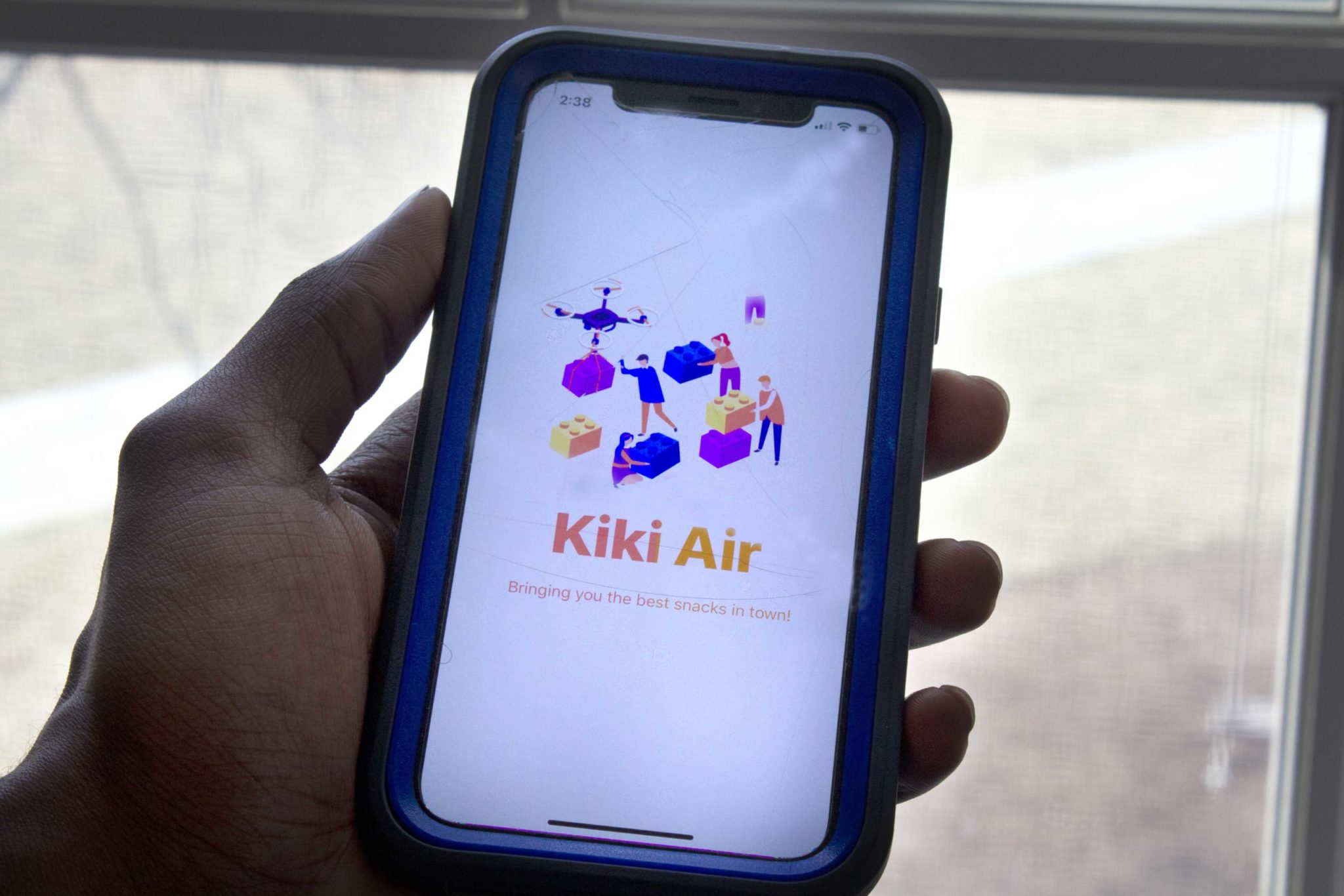
Paule Pineda
The Yale-student-run drone delivery service Kiki Air has been temporarily grounded, according to its founder Jason Lu ’20 and Yale spokesperson Karen Peart.
The business aimed to provide busy college students with snacks and other sundries minutes after they place an order through the company’s app via drone delivery. However, in the midst of its beta testing, the app has temporarily suspended its operations. According to Lu, the company is “voluntarily pausing” its service to work with the University and the federal government to improve its protocols.
“Kiki Air is committed to the safety of the national air space system and the Yale community,” Lu wrote in an email to the News. “We worked with the University to conduct our trial, and our proposed operations are compliant with regulations.”
The app was in the process of conducting beta testing — allowing a select group of users to try out the app and offer feedback before it launched to a larger audience. The business initially planned to continue testing until March 6 and anticipated a large-scale rollout in the upcoming fall semester.
Lu clarified that the app will resume operations, but did not provide a time frame. He said the company had halted its trial to craft a “faster” and “safer” service.
“Developing is an iterative process,” Lu said. “We paused our flights to give our team time to work on research and development and further improve our app’s experience.”
Yale’s Environmental Health & Safety website specifies that the University, in conjunction with the Federal Aviation Administration, oversees the operation of all unmanned air systems — drones. Before taking flight, all drone operations must receive approval from Yale’s Environmental Health & Safety office and the Office of Risk Management.
The FAA classifies Yale’s campus as Class D airspace — meaning it’s in the area surrounding an airport with an operational control tower; Yale is 4.5 miles from Tweed Airport. As such, Kiki Air had to receive either an airspace authorization or airspace waiver from the FAA prior to conducting its trial.
A New Haven Register article earlier this week claimed that the business had not received authorization to fly over Yale’s campus, citing an unnamed FAA official. However, Lu said that Kiki Air does have a Class D airspace authorization, which he said was valid until 2021. He said that the company has “very rigid protocols that are compliant with FAA rules.”
“The University has a drone procedure to address privacy, security and safety concerns and to ensure compliance with FAA regulations,” Peart wrote in an email to the News. “Kiki Air submitted a request under this procedure and provided documentation to the University in support of their request.”
According to Arlene Salac, public affairs contact for the Federal Aviation Administration’s New England region, the FAA is aware of and currently “looking into” reports that Yale students are using drones to make deliveries on campus.
“The FAA will meet with the students and University officials as part of the FAA’s outreach and education efforts to encourage voluntary compliance with FAA drone regulations,” Salac wrote in an email to the News.
The app, which originated as Lu’s final project for a Yale course, aimed to find a niche in the food delivery market by offering orders with no minimum price or delivery fee.
Lu provided the idea, Josh Ip ’22 the code and Cat Orman ’22 the marketing skills. So far, the business has received funding from investors, and was offered a selective $150,000 grant from Y Combinator.
The app functions by retaining Yale students — largely from the Air Force Reserve Officer Training Corps program — to pilot the drones. One student operates the drone, and another monitors the airspace for obstacles and inclement weather. Before the drones drop their cargo, customers confirm the designated drop-off location is free of obstacles.
Lu confirmed to the News that all of Kiki Air’s student pilots are FAA-certified and licensed.
Rose Horowitch | rose.horowitch@yale.edu







